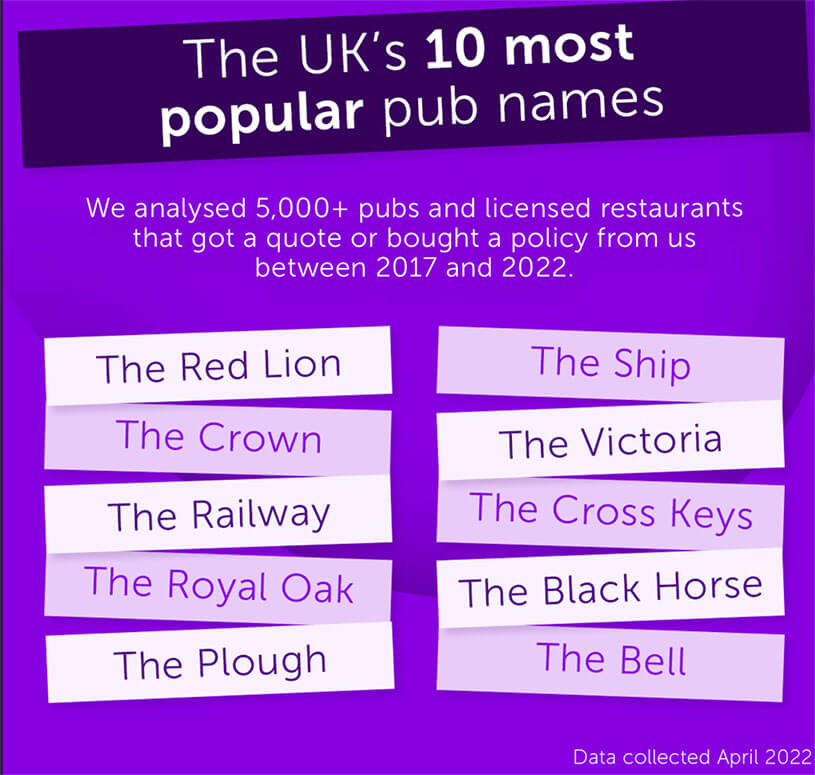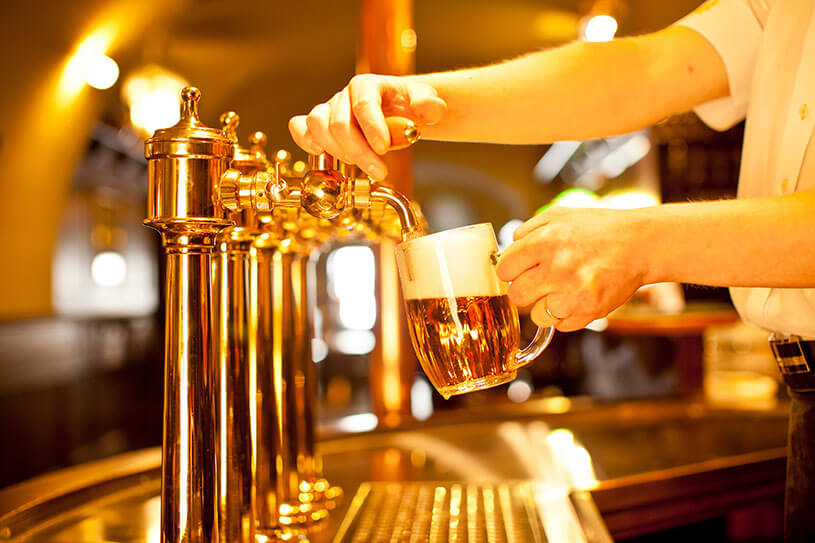Interested in running a pub for the first time? It’s a great way to work for yourself, and to take advantage of the UK’s love for service and hospitality businesses.
But there are a few things you need to know to get started. Here, we’ve put together a step-by-step guide to running a pub.
6 steps to starting a pub
1. Choose between freehold, leasehold, and tenancy. Choosing the legal basis for your pub is a key concern – you’ll need to choose between freehold, leasehold, and tenancy, and tied or free of tied.
2. Get trained. If you’re running a pub for the first time, you need to think about training.
3. Think about legal compliance. There’s a range of legal obligations you’ll need to fulfill when running a pub.
4. Recruit staff. Great pubs need great staff. Learn where and how to recruit.
5. Think about stock. You’ll need something to sell! Build your menu and find suppliers.
6. Develop your business. Feeling ambitious? Take some steps to build your business further.
Check out more details on each point below.
First, check out the most popular pub names in the UK
After analysing more than 5,000 pubs across the country, Simply Business research found the top 10 most popular pub names. Does your pub’s name feature here?

How to run a pub – step-by-step
1. Choose between freehold, leasehold, and tenancy
There are three ways in which you might run a pub. In a freehold, you will own the pub outright. For this you’ll probably need a mortgage. However, freehold pub owners can generally negotiate good discounts with suppliers.
In a leasehold, you take on the right to occupy the pub for a fixed term. A lease might be created by a landlord such as a brewer, or could be sold or assigned by another pub owner. The pub is sold as a going concern.
In a tenancy agreement, you assume the right to occupy the pub for a short-term period, normally up to three years. However, the tenancy may roll over under the Landlord and Tenanct Act. Under a tenancy, you can’t reassign the right to occupy – so you can’t ‘sublet’ your pub.
You’ll also need to think about the ‘tie’. In a pub that is free of tie, you are able to choose which suppliers you deal with. In a tied arrangement, you have to buy from a specific brewer or pubco (a company that owns a chain of pubs). Freehold pubs are generally free of tie.
2. Get trained
If you’re running a pub for the first time, you might need some training. You’ll need a personal license, along with several other certificates for things like personal license operation and health and safety. If you’re leasing from a pubco, they might also require you to complete other, more specific training.
3. Think about legal compliance
In addition to legal requirements like health and safety training and personal licenses, you should also consider insurance – read more about the insurance responsibilities for pub owners and tenants.
Insurance for pubs
Simply Business can help you get the right insurance for your new pub. Some of the covers to think about include:
- Public liability insurance, which can protect you if someone suffers an injury or damage to their property as a result of your business
- Employers’ liability insurance, which you’re likely to need if you have employees (if you need it and don’t have it, you could be fined)
- Buildings insurance, which can cover your premises for damage caused by a disaster like a fire or flood
You can tailor a policy to the needs of your business. Start building your pub insurance policy now.
4. Recruit staff
A pub is only as good as its staff. You need to know where to hire the right people – and, crucially, the skillsets that you require. Luckily, there’s a growing number of dedicated pub and hospitality recruitment companies in existence all around the country.
If you’ve not hired anyone before, read more about hiring your first employee – and, crucially, remember that you’ll need employers’ liability insurance.
5. Think about stock
Stock is a key consideration for any pub owner. If you’re in a tied pub, you’ll be required to buy from the relevant brewer or pubco. However, if you’re free of tie, you may be able to negotiate good discounts with suppliers.
If you have the freedom to choose suppliers, remember that the quality of what you’re selling is one of the most important factors in a pub’s success. If you’re serving food, try to make sure that you’re using the best produce your margins can bear, and for drinks, make sure that you’re offering an exciting, balanced series of options – and don’t leave out non-drinkers!
6. Develop your business
Finally, once you’re on your feet, you might want to start thinking about developing your business further. Whether this involves taking on new pubs or expanding an existing one, there’s plenty of options. Whether you’re running pub quizes or booking events in the back room of your existing venue, or exploring the local chain model perfected by groups like London’s Antic Pubs, there’s a huge range of ways in which you can develop your pub and its brand.
You should also make the most of online marketing. From creating a website for your business to learning SEO (Search Engine Optimisation), there’s lots of opportunity to promote your business digitally. It’s also a good idea to get to grips with online review sites, so you can read and respond to customer feedback.
Ready to start your pub?
Running a pub is fast-paced and exciting. Come up with a strong concept and business plan, do thorough market research and focus on how you can make your pub stand out in your community.
Is your pub insured?
We have 800,000 UK policies plus a 9/10 satisfaction score. Why not take a look at our specialised pub insurance – including the likes of public liability insurance and stock cover – and run a quick quote now?
Photo: habrda/stock.adobe.com
